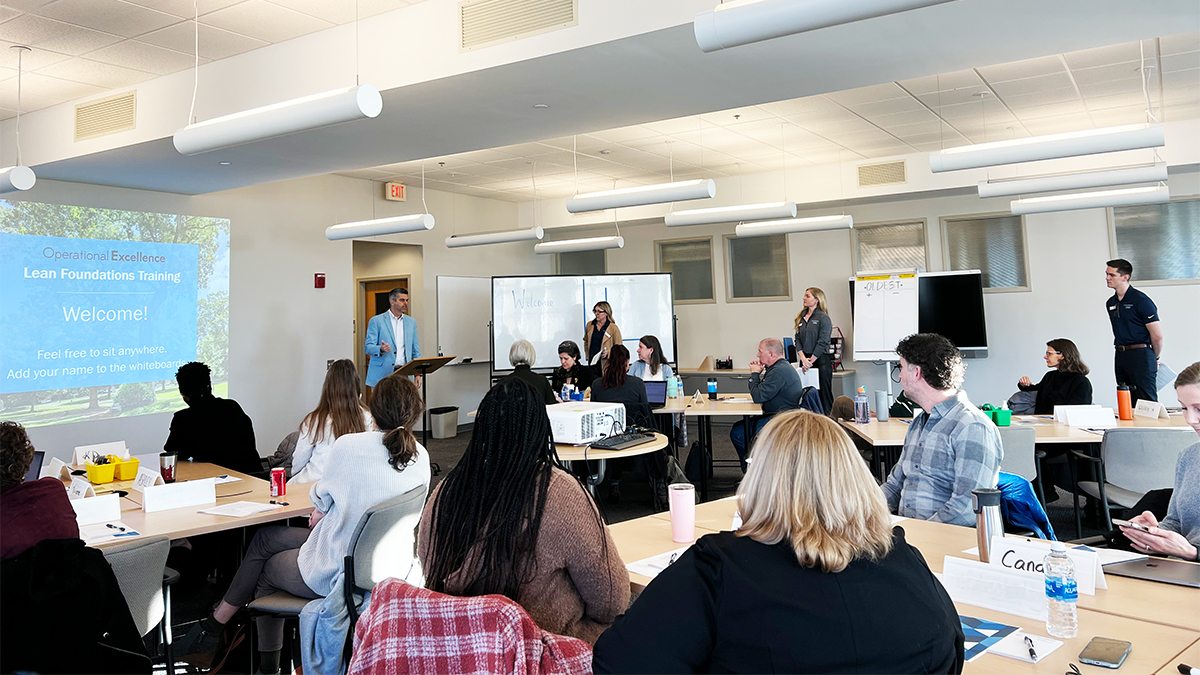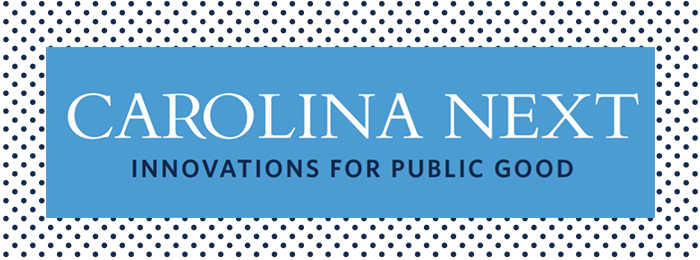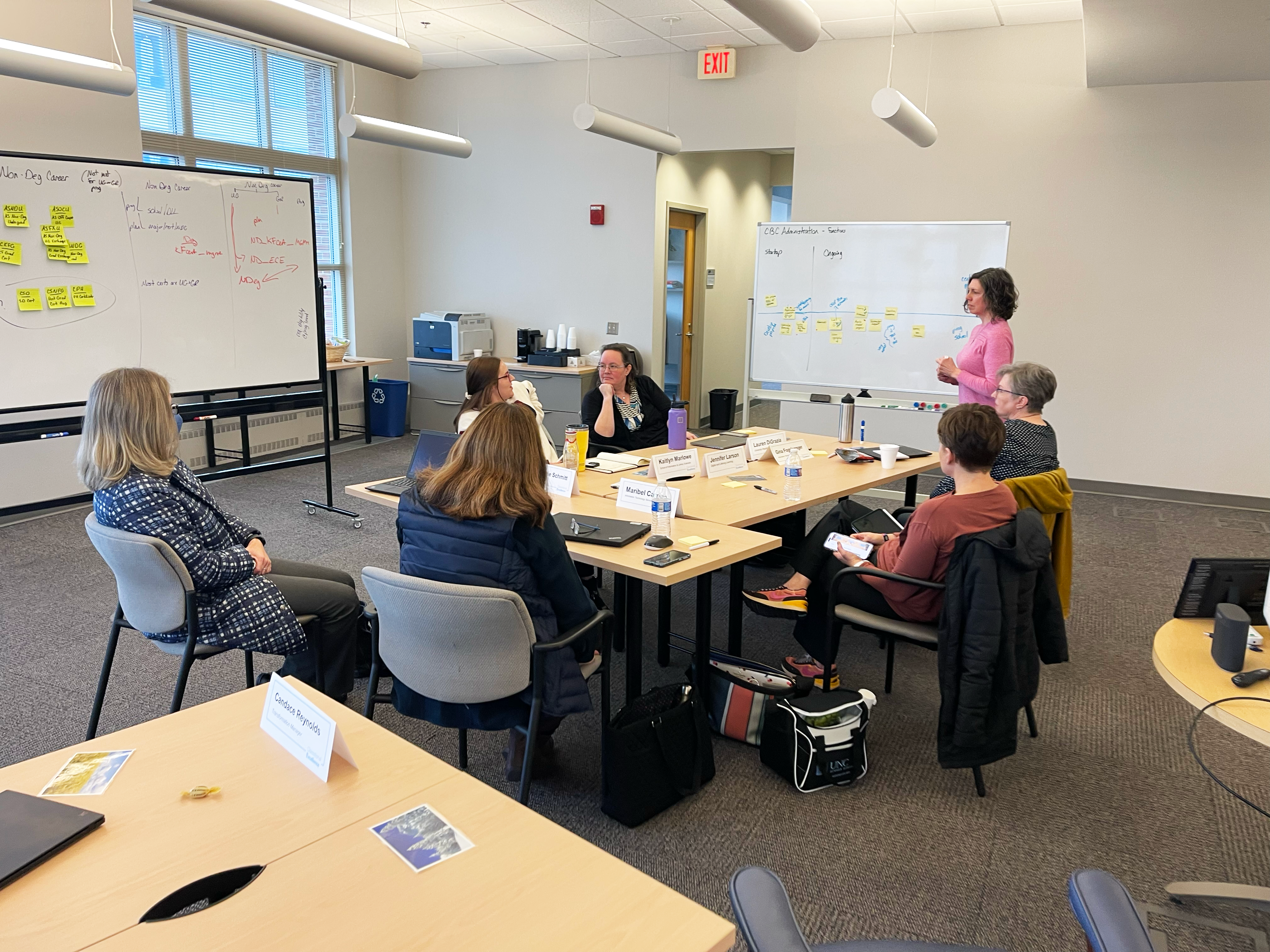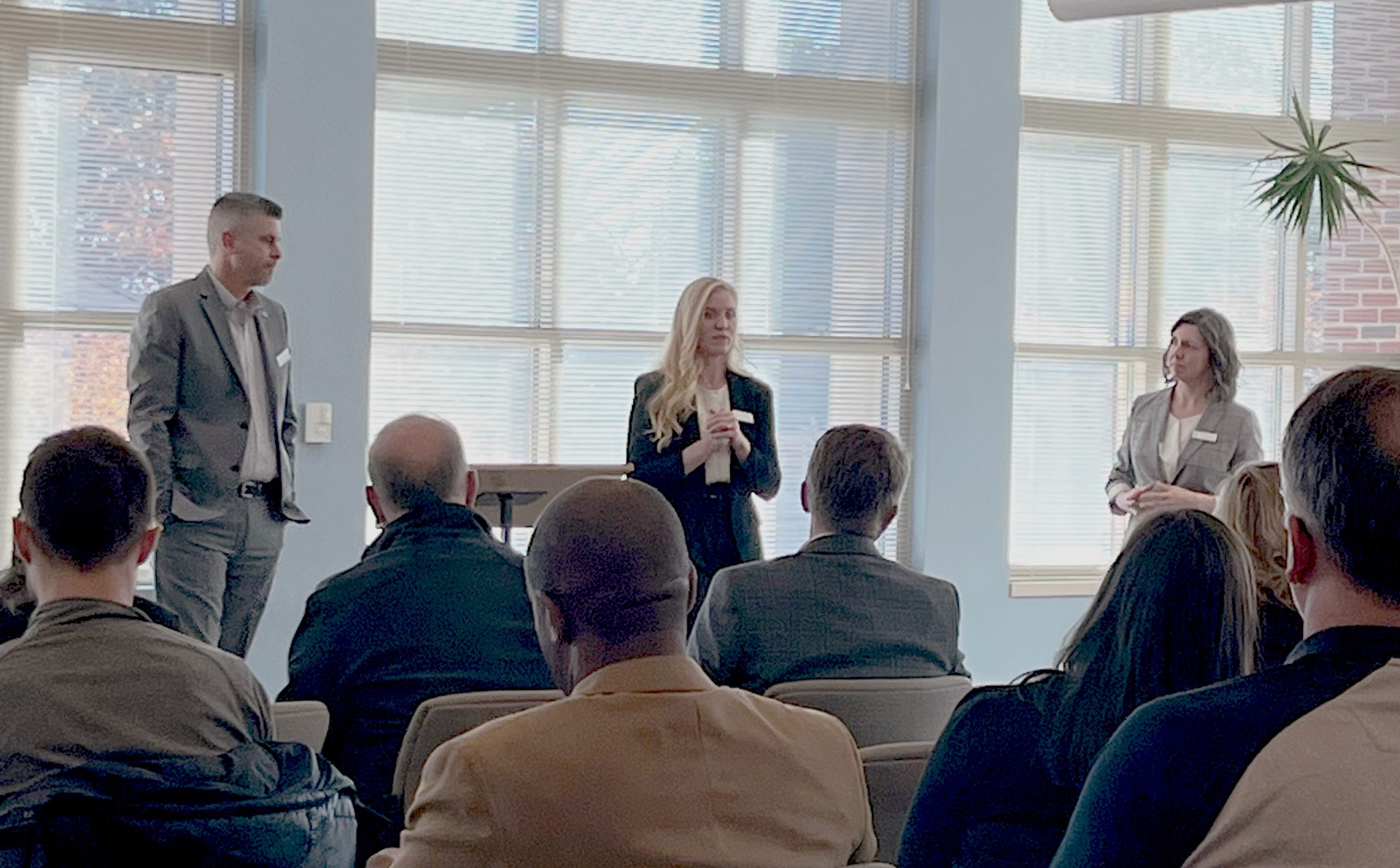Operational Excellence team makes campus connections
These partnerships build a more effective organization and support the Carolina Next objective to “optimize operations.”


In 2021, University leaders wanted to develop a plan to reimagine work at Carolina — a way to prioritize the on-campus student experience while meeting the demand for flexible work arrangements. For help, they turned to the team at Operational Excellence.
Under the Office of the Chancellor, the Operational Excellence team works to support, guide and collaborate with subject-matter experts across the University to tackle campuswide challenges and improve business operations. The work bolsters the goals of Optimize Operations, the eighth initiative in Carolina Next: Innovations for Public Good, the University’s strategic plan.
The close-knit team, led by Rick Wernoski, senior vice provost for business operations and captain of the Optimize Operations strategic initiative, works day-to-day with partners across Carolina. The team prides itself on constantly considering how to build a more effective and sustainable organization.
“The Operational Excellence team looks to further support strategic priorities and initiatives by developing relationships, connecting partners and utilizing our skills and toolkit to jumpstart transformative process improvements and launch high-impact initiatives. We hope to inspire a culture of continuous improvement across campus and equip the Carolina community with the skills and connections to contribute to advancing Carolina Next,” Wernoski said.
The Operational Excellence team focuses on three distinct categories: transforming University administrative operations, planning and executing executive level projects and developing continuous improvement competencies campuswide. Examples of projects within each of these categories offer insight into the work Operational Excellence is doing to support the University’s operations.
Transforming University administrative operations
In 2021, Operational Excellence took on the project for establishing guardrails for flexible working arrangement decisions for the University. For the Future of Work project, Senior Transformation Manager Candace Reynolds used a “solution design” approach, which relies on continuous stakeholder engagement, to identify needs and how to solve for them. The team defined work location options and developed tools to help make decisions on work arrangements.

Candace Reynolds leads a solution design team. (Courtesy of Operational Excellence.)
“The Operational Excellence Future of Work project dove into a complex topic at a chaotic time and came up with a workable solution for the first phase of flexible work following our return to campus,” said Katie Musgrove, business officer in the School of Law and chair of Employee Forum. “The teamwork and collaboration of the design team was critically important in developing a flexible work process that suited the needs of a very diverse workforce.”
The 13-member design team collaborated with partners in human resources, equal opportunity and compliance, finance and operations and more. The project built on the previous Flexible Work Location Pilot Program and designed a framework for supervisors to navigate flexible work arrangements with considerations for individual role needs. The project culminated with a playbook outlining recommendations for flexible work arrangements and guidelines.
“It was great to get to contribute to the design process for a program that would serve as a real value and benefit to Carolina staff and their work-life balance. In order to stay competitive in this tough job market, we have to allow flexibility for our employees. The Operational Excellence team and design process allowed us to move our campus toward that goal in an intentional and optimal way,” Musgrove said.
Planning and executing executive level projects
The Carolina Community Academy, an innovative school within North Elementary School in Roxboro, North Carolina, was created as part of a University initiative to redefine and strengthen partnerships with North Carolina public schools, improve student outcomes and provide high quality teacher and principal training. In August 2022, the academy welcomed its first class of kindergartners with plans to add a grade level each year, eventually serving K-2 students.
The project, led by Mieke Kovens, Operational Excellence senior transformation manager, used solution design and engaged Person County Schools, North Elementary staff and campus partners, including experts from the School of Education. Together, they developed processes and programming for an integrated curriculum with essential elements like emotional regulation, friendship skills and more.

Mieke Kovens presents on work with the Carolina Community Academy at Operational Excellence’s annual event. Rick Wernoski and Candace Reynolds stand on either side of her. (Courtesy of Operational Excellence.)
“When faced with the wonderful challenge to stand up Carolina Community Academy in partnership with Person County Schools in a very short period, all parties were overwhelmed,” said Fouad Abd-El-Khalick, dean of the School of Education. “Operational Excellence provided an amazing boost of immediate, agile and professional bandwidth that helped us realize this goal. Today, a campuswide coalition of schools and centers are working with the CCA community to provide amazing support for our students and families as well as the community.”
Developing continuous improvement competencies
Operational Excellence recently launched an introductory training aimed at providing Carolina employees with the skills and knowledge for effectively and efficiently tackling operational challenges. The Lean Foundations Training was piloted in August 2022 and was officially launched to the campus community October 2022. The course is designed to be engaging and fun while covering tools, techniques and methodologies for implementing “lean” principles for working more efficiently.
Participants join in activities that introduce the foundational approaches to problem-solving practiced by Operational Excellence. The small-group exercises use project examples to teach real-world application of the tools and techniques to improve processes and support operational success across campus.

Nick Sengstaken, transformation manager, facilitates a session during Lean Foundations Training. (Courtesy of Operational Excellence.)
“The training is well worth it. The activities are engaging, and you walk away feeling like you’ve learned something you can take back with you,” said Jason Cross, technology support specialist with ITS and ITS ServiceNow Engagement Team member. “My job includes this type of work, but I haven’t been able to articulate the ideas and tools to others in the same way the training did. The inclusion of specific examples from Carolina also really helped us see how lean [principles] could be applied to our everyday work.”
Operational Excellence’s conversations and collaborations with partners give the team an opportunity to gain insight, identify common threads and improve existing processes and operations while identifying future University-wide projects.
“The partnerships formed and opportunity to collaborate on campus-wide initiatives supports and progresses the University’s key mission of teaching, research and public service,” Wernoski said. “Operational Excellence aims to act as a catalyst for change and a champion of transformation as we continue to partner with campus units and schools to develop and implement sustainable transformative change.”




